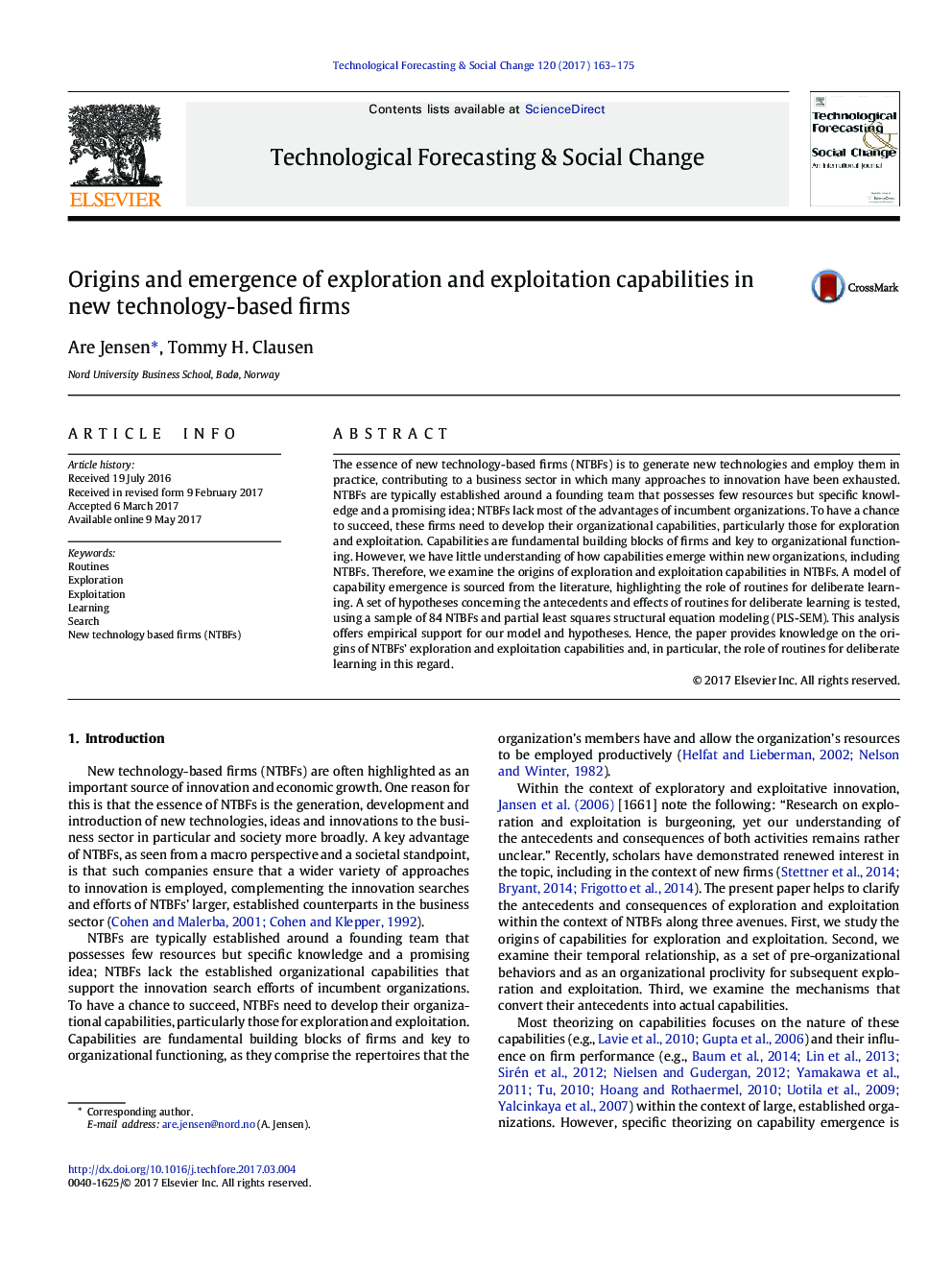| Article ID | Journal | Published Year | Pages | File Type |
|---|---|---|---|---|
| 5036777 | Technological Forecasting and Social Change | 2017 | 13 Pages |
â¢A model for the emergence of new technology based firms' exploration and exploitation capabilities is proposed and tested.â¢The model illustrates the importance of routines for deliberate learning, prior relevant knowledge, and search behaviors.â¢Routines are often overlooked in entrepreneurship research. We provide evidence of their usefulness.
The essence of new technology-based firms (NTBFs) is to generate new technologies and employ them in practice, contributing to a business sector in which many approaches to innovation have been exhausted. NTBFs are typically established around a founding team that possesses few resources but specific knowledge and a promising idea; NTBFs lack most of the advantages of incumbent organizations. To have a chance to succeed, these firms need to develop their organizational capabilities, particularly those for exploration and exploitation. Capabilities are fundamental building blocks of firms and key to organizational functioning. However, we have little understanding of how capabilities emerge within new organizations, including NTBFs. Therefore, we examine the origins of exploration and exploitation capabilities in NTBFs. A model of capability emergence is sourced from the literature, highlighting the role of routines for deliberate learning. A set of hypotheses concerning the antecedents and effects of routines for deliberate learning is tested, using a sample of 84 NTBFs and partial least squares structural equation modeling (PLS-SEM). This analysis offers empirical support for our model and hypotheses. Hence, the paper provides knowledge on the origins of NTBFs' exploration and exploitation capabilities and, in particular, the role of routines for deliberate learning in this regard.
